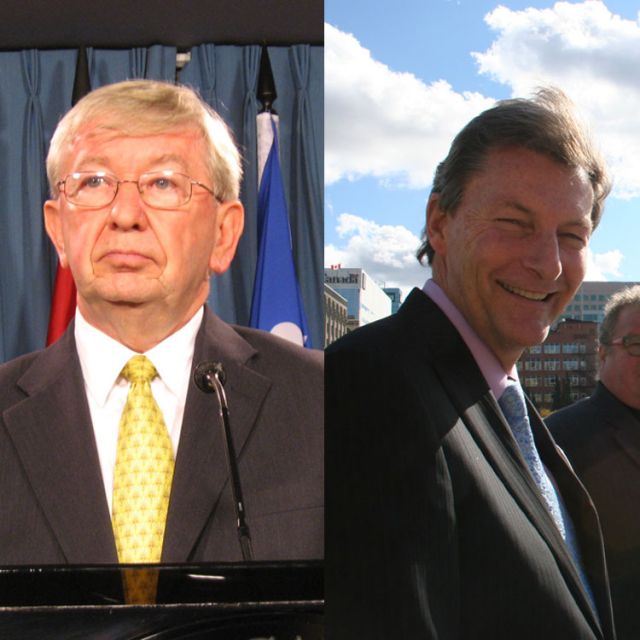Speaking at a conference that examined the role of religion in public discourse, Comartin said he had experienced difficulties within his own party, calling it the “worst” in so far as intolerance of opinions based on religious conviction was concerned. But, “I pushed back hard on that,” he said.
“That is why I set up the Faith and Social Justice Commission in the party,” to counter the “secular attack,” said Comartin, the Deputy Speaker of the House of Commons. “I vote on the values I grew up on.”
Comartin was joined on a panel by two other MPs, Liberal John McKay and Conservative Mark Adler, as part of a two-day conference called Bridging the Secular Divide: Religion and Canadian Public Discourse held May 27-28 at McGill University.
The program featured a number of discussions on a wide range of topics, all touching upon the need for respectful dialogue in the context of democratic engagement in a modern pluralistic society. Participants included religious leaders from different faith communities, academics, politicians and journalists.
The trio of MPs explored the legitimate role of religion in framing matters of public concern, and addressed the challenges politicians face when called upon to make difficult choices about contentious moral and social issues. McKay said he believed that, for many elected officials, politics was driven by pragmatism, creating tension for politicians of faith like himself who feel compelled to vote their conscience no matter how politically incorrect their views. He said that whenever a discussion about public affairs took place, some policy wonk would inevitably pose the question: “What does the soccer mom think about this?”
While McKay supports the new Office of Religious Freedom established by the Conservatives, he was quick to add: “Don’t think it wasn’t a happy coincidence of principles and politics.”
McKay doesn’t see the media as being the enemy of religious opinion in the public square — as many of the faithful believe — so much as the party system. There was general agreement that faith-based perspectives were viewed as less of a threat when religious leaders made missions to government about mainstream social and environmental issues, but any discussion of “wedge issues” like abortion and same-sex marriage rankled many of their colleagues.
In response to a question from the floor by Dr. Margaret Somerville about the issues of euthanasia and assisted suicide, Adler said he would take a “cautious approach.” Comartin said that he had talked with many pain management experts and that euthanasia wasn’t necessary to alleviate pain.
“It is very rare that we can’t control pain,” he said.
Comartin bemoaned the fact that “not one country has legislation that protects the vulnerable from assisted suicide.”
Somerville also asked if panel members saw their task as representing voters or being true to their values, pointing out that democracy and ethics are not the same.
McKay said he was prepared to live with the political consequences of his decisions even if some constituents disagreed with him, although he felt obliged to justify his position to his constituents. Comartin said he didn’t treat religious groups differently from any other group.
The panel discussion was followed by a brief talk by Montreal Archbishop Christian Lepine. He said it is important to make a distinction between the kind of secularism that is closed and one which is open. He said that society really isn’t secular. It is actually pluralistic with many currents of thought and belief, and in a pluralistic democracy neither religion nor secularism may be imposed. One is free to believe in God or not.
However, the danger in the kind of secularism that is being proposed by some is that it can lead to a “cult of the state.”
He said that it is a mistake to prevent religious expression in the life of a community because we are all human and “dialogue must continue.”
(Rankin writes for Convivium magazine.)

